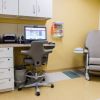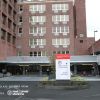Dealing with the Challenges of Heart Disease Recovery
Recovering from heart disease can feel like an overwhelming journey. After being diagnosed, I remember feeling both hopeful and scared—hopeful because I knew there was a way forward, but scared because I wasn’t sure what to expect. The road to recovery is not always easy, and there are many challenges to overcome. However, after months of learning, struggling, and growing stronger, I’ve realized that while the path may be difficult, it’s also full of opportunities for healing and growth. If you're currently recovering from heart disease, here’s what I’ve learned and how you can deal with the challenges along the way.

1. Managing Physical Limitations During Recovery
After a heart attack or diagnosis of heart disease, your body often needs time to heal. One of the first and most challenging obstacles is dealing with the physical limitations. In the beginning, simple tasks like walking up stairs or carrying groceries can feel exhausting. I remember how frustrated I was when I couldn’t do things I used to take for granted. But over time, I learned that managing these limitations is a crucial part of recovery. My doctor emphasized the importance of starting with gentle movements and gradually building strength.
It was important not to push myself too hard too soon. With proper medical advice, I began with short walks and light stretching, focusing on small goals that I could gradually expand. Over time, these small efforts added up, and I was able to walk longer distances and regain more strength. If you’re in a similar situation, try to be patient with your body. Start slow, follow your doctor’s recommendations, and celebrate small victories.
Atlanta Heart Specialists
atlanta heart specialists
4375 Johns Creek Pkwy #350, Suwanee, GA 30024, USA

2. Emotional Struggles and Mental Health
Recovering from heart disease isn’t just about physical healing; emotional and mental health are just as important. The shock of a heart disease diagnosis can be emotionally overwhelming, and recovery often brings feelings of fear, anxiety, and sometimes depression. I remember feeling uncertain about the future and whether I would ever be able to live the same active lifestyle I once had. These feelings are common, and it’s important to address them head-on.
One of the best ways I learned to manage emotional challenges was through therapy and support groups. Speaking to a therapist helped me process my fears and frustrations, while support groups provided me with a sense of community. Connecting with others who were going through similar experiences allowed me to realize I wasn’t alone. If you're feeling overwhelmed, don't hesitate to reach out for emotional support. Mental health is just as important as physical health in the recovery process.
Building Healthy Habits for Long-Term Recovery
3. Adopting a Heart-Healthy Diet
What you eat plays a crucial role in recovery. Early in my recovery, I didn’t realize how much my diet could impact my heart health. A heart-healthy diet, rich in fruits, vegetables, lean proteins, and whole grains, is essential to support the body during recovery. On the other hand, foods high in saturated fats, sugar, and salt can worsen heart health, so I made a conscious effort to change my eating habits.
At first, making the change was difficult. I missed my comfort foods, but as I started feeling better, I noticed the difference a healthy diet could make. Not only did I feel more energized, but my doctor also saw improvements in my cholesterol and blood pressure. If you’re recovering from heart disease, try to incorporate more heart-healthy foods into your daily routine. Small changes, such as replacing processed snacks with nuts or choosing baked over fried foods, can make a big difference over time.
4. Importance of Regular Exercise
Exercise is another key factor in heart disease recovery. While it may seem intimidating to exercise after a heart issue, it’s essential for improving cardiovascular health and rebuilding strength. Initially, I struggled with the idea of exercising, especially after a heart attack. However, with the guidance of my doctor and a physical therapist, I began to ease into a gentle exercise routine. At first, it was only short walks or gentle stretches, but as my body grew stronger, I gradually increased the intensity of my workouts.
Exercise helps lower blood pressure, improve circulation, and strengthen the heart muscle, all of which are vital for recovery. For anyone recovering from heart disease, starting with low-impact activities like walking, cycling, or swimming can be an excellent way to ease into a routine. Remember, the goal is gradual improvement, not immediate perfection. Start slow, listen to your body, and gradually increase the intensity as your strength builds.
5. Building a Support System
No recovery journey is done alone, and building a strong support system is essential. In the early stages, I felt isolated, but I soon realized how important it was to have a network of people who cared. My family and close friends became my support pillars. They encouraged me during tough times and helped me stick to my recovery plan. Additionally, I found comfort in online communities and local support groups, where I could share my experiences and hear from others who had gone through similar challenges.
If you're struggling during your recovery, try to reach out to those around you. Don’t be afraid to lean on your loved ones. They can help you stay motivated, give you emotional support, and even assist with physical tasks if needed.
Staying Positive and Committed to Recovery
6. Focusing on Small Wins
One of the most important lessons I learned during my recovery was the power of focusing on small wins. It’s easy to get discouraged when the road seems long, but by celebrating each small victory, I kept my motivation alive. Whether it was walking a little farther than I did the day before or eating a healthy meal instead of junk food, each step forward was a win. These small moments of progress kept me going, even on tough days.
Staying committed to the process, even when progress feels slow, is key. Recovery isn’t a race—it’s a journey. Take it one day at a time and recognize that every little improvement matters.
7. Consistency Is Key
Recovery from heart disease requires consistency. There will be days when it feels like you’re not making any progress, and there will be setbacks. But staying consistent with your diet, exercise, and mental health care is vital. I’ve learned that small, consistent efforts every day add up over time. The more consistently I took care of myself, the better I felt physically and emotionally.
If you're committed to your recovery, it may take time, but the effort will pay off. Stay positive, stay patient, and keep moving forward, even if it’s just one small step at a time.





















Deborah Heart and Lung Center
deborah heart and lung center
200 Trenton Rd, Browns Mills, NJ 08015, USA